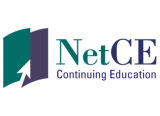Cultural Competency: Providing Meaningful Care to a Diverse Patient Population

We all possess innate biases that may cause us to treat patients differently without us even being aware of it. At the end of this course, you should be able to take a second look at instances in your patient interactions that might cause misunderstandings.
Category
- Cultural Competency
Format
- Self-study / Enduring
Credits
- 0.50 AMA PRA Category 1 Credit™
Implicit Bias

This module provides an overview of implicit bias, and how it is manifested in everyday clinical decision-making. Viewers will learn about the underlying psychology and neuroscience of implicit associations, and assess their own biases to increase self-awareness.
Category
- Implicit Bias
Format
- Self-study / Enduring
Credits
- 1.50 AMA PRA Category 1 Credit™
A Physician’s Practical Guide to Culturally Competent Care

As healthcare disparities among cultural minority groups persist in our country, culturally and linguistically appropriate services (CLAS) are increasingly recognized as an important strategy for improving quality of care to diverse populations.
Category
- Cultural Competency
Format
- Self-study / Enduring
Credits
- 9.00 AANP Contact Hours
- 9.00 AAPA Category I CME
- 9.00 AMA PRA Category 1 Credit™
Gender Affirming Care 101: Providing Hormone Therapy

This module reviews important terminology, addresses medical biases, and identifies best practices for serving transgender and nonbinary patients.
Category
- LGBTQ
Format
- Self-study / Enduring
Credits
- 2.00 AMA PRA Category 1 Credit™
The Intersection of Pain and Culture

Pain is invisible, and diagnosis depends on patients' reports. These factors contribute to the treatment of pain to be devalued and stigmatized. When issues of culture, race, and ethnicity come into play with pain experiences, it becomes even more complex.
Category
Format
- Self-study / Enduring
Credits
- 5.00 Approved Continuing Education (ACE)
- 5.00 Association of Social Work Boards (ASWB)
First Steps in Diversity, Cultural Humility, and Patient Care

This session will shine a light on health disparities in the U.S. and ways to overcome them by embracing diversity, combatting bias, and employing cultural competency to improve patient-provider communication.
Category
- Cultural Competency
Format
- Self-study / Enduring
Credits
- 1.00 AANP Contact Hours
- 1.00 AMA PRA Category 1 Credit™
How to Taper Patients Off of Chronic Opioid Therapy

Internet Enduring Material Sponsored by the Stanford University School of Medicine. Presented by the Department of Psychiatry and Behavioral Sciences at Stanford University School of Medicine
Category
Format
- Self-study / Enduring
Credits
- 1.25 AMA PRA Category 1 Credit™
Counseling Patients at the End of Life

End-of-life decisions can be complex and challenging. Health and mental health professionals can help with their expertise, whether it is for the person facing death, their family, surrogate decision makers, or caregiver.
Category
Format
- Self-study / Enduring
Credits
- 5.00 Approved Continuing Education (ACE)
- 5.00 Association of Social Work Boards (ASWB)
The Coronavirus Disease (COVID-19) Pandemic

Widespread outbreaks of novel (new) coronavirus infection have occurred in each of the past two decades, and the current outbreak poses the third threat of a severe novel coronavirus epidemic on a global scale.
Category
Format
- Self-study / Enduring
Credits
- 2.00 MOC
- 2.00 Approved Continuing Education (ACE)
- 2.00 AMA PRA Category 1 Credit™
- 2.00 ANCC
- 2.00 Association of Social Work Boards (ASWB)

 Facebook
Facebook Twitter
Twitter LinkedIn
LinkedIn Forward
Forward